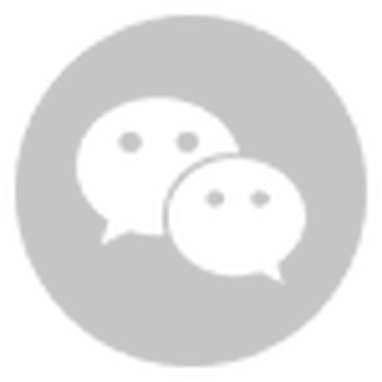Editor Note: This story is translated from a story by the WeChat news company, "Things About Mobile Games" published earlier this month.
The COVID-19 epidemic is starting to move worldwide and affect any in different areas of the world. Many publishers in the game industry have responded with support through donations and public service reminders. But in the case of casual game developer Ohayoo, they've taken their skills to help more innovatively.
Beijing-based Ohayoo decided to create their own puzzle action game using Cocos Creator to educate and entertain people called "Battle of Pathogens" for the WeChat mini game platform and mobile app platforms. The game is a combination of epidemic prevention, medical science, and casual game.
"Battle of Pathogens" launches as an easy and fun epidemic prevention game
The gameplay of "Battle of Pathogens" is similar to the "Fruit Ninja" style of gameplay that popularized touch-screen smartphones in the early years. The game modes are divided up into a level mode and an infinite mode. Players need to swipe the screen to eliminate various viruses falling from the top of the screen and protect humans below the screen.

After entering the level, players must fight the viruses, so they don't fall on the human body. Whenever a virus escapes the player's attack, the human body temperature will rise. Getting a high fever means that you failed the challenge. The rules are simple, and the gameplay is easy to understand. There is no doubt that the "Battle of Pathogens" is a casual game for young and old.
It is worth mentioning that in addition to not getting a "high fever" in the game, there are also many ways you are educated about infectious diseases that are part of everyday life. For example, the score settlement interface refreshes different tips and knowledgable information on epidemic prevention. According to Ohayoo, the game will also light up the city in the main menu and an achievement ranking system to helps you in gameplay.

Through casual games, which are fun, easy, and subtle, they can guide the general public to learn and master epidemic prevention knowledge, learn to use epidemic prevention equipment correctly, and protect the health of themselves and their families.
Seamlessly combine casual games and public welfare
In 2019, Beijing proposed the goal of improving the city with one proposal being a high-quality game research and development center in the area of Haidian. The government hopes game companies can help in creating educational games for the city and country with smaller mini app games being a focus.
When the government came to Ohayoo during the crisis, they decided to make the game "Battle of Pathogens" and give it gameplay that is "easy to use" and "easily shared." The game has almost no requirements on the player's skills. This design can ensure that new players of different ages, genders, and skill levels can participate in the game.
Secondly, although the gameplay is simple, the feedback given to the player is fun and enjoyable. As mentioned above, fun games not only allow players to enjoy the process of playing, but also make them want to share in their social circle, and even share what they learned in the game. In the process of enjoyment, players are more susceptible to learning more about epidemic prevention, and actively sharing it with a further audience.

In addition, when Ohayoo launched the "Battle of Pathogens" as a mini app, it chose a "two-pronged approach" to release it as a native app as well. The mini-games were launched earlier than the native app because it had the advantage of eliminating the threshold of download and installation, and has an advantage of getting people interested in the bigger game as a native app. A relevant person at Ohayoo said: "The development and launch of our game have received strong support from the local government to help educate people about the dangers of the virus."
And according to the data disclosed by WeChat at the beginning of the year, there is a clear trend that middle-age people increasingly enjoy mini app games with those living in the smaller cities and villages (China names these tier 3, 4, and 5 cities) in China loving them the most.

Whether it is a small program or a native app, the development of casual games is relatively simple, and the cost is relatively low, and the development cycle is shorter than native apps. In the face of unexpected situations, the response is faster, so the corresponding product can be launched in a short time, and it is more convenient to adjust the content according to the actual situation in the future.
Editor Note: Thanks to Cocos Creator, it's much easier to experiment, prototype and create games for the WeChat mini app platform, along with exporting your game to native apps in just a few quick minutes. Try now and develop with Cocos Creator for free.
Coupled with the impact of the epidemic, most offline entertainment, like movies and sports, are limited. Online entertainment has become everyone's first choice in China. After everyone found the advantages of this frustrating situation, using casual games for epidemic prevention has become one of the many great approaches to help everyone be thoughtful and entertained these days.








